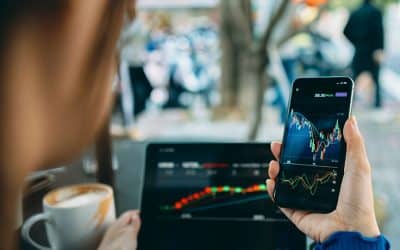Investor alert: new economic shock

Redacción Mapfre
Javier de Berenguer, investment manager and fund selector at MAPFRE Gestión Patrimonial, explains that China's data are indeed worse than was originally expected, although he highlights that monetary and fiscal policies in the country are not as important as they are in Europe and the United States, and that the Chinese government is in the midst of changing its growth model to boost quality and make future economic development more sustainable.
The key factor in this process is growing the middle class, which is a more structural element. “The quality of growth is important, in that it needs to trickle down to the population at large. It also needs to be more sustainable over time, and that will in turn be transferred to quotes,” he said.
Germany's slowdown, for its part, has a “big impact” on European countries. "Germany has idiosyncratic elements. It’s a highly industrialized country and therefore suffers especially from high energy prices. Developed countries depend heavily on consumption, and Germany in particular has strong ties with China," he explained. In any case, he doesn’t anticipate serious complications beyond that slowdown.
Furthermore, consumption, which was kept afloat in recent months thanks to people releasing pandemic savings, may fall in the coming months, although consumer goods companies are still strong. The perfect example is Inditex, which this week reported that its earnings rose by 54% in the first quarter of the year to 1.17 billion euros. However, De Berenguer warns that this result “is not something that can be extrapolated” to the coming quarters.
In this context, the fund manager recommends diversifying portfolios and investing in assets with a lower risk profile, taking the forecasted slump in consumer demand and inflation into account. “The equity risk premium is insufficient in the short term,” he argues.
New Fed meeting
Investors are also awaiting the next meeting of the US Federal Reserve, set to take place next week. Analysts don’t seem to be expecting additional interest rate hikes, although De Berenguer noted the dispersion in inflation forecasts.
“We haven't seen this level of dispersion in decades, and it makes markets and central banks hesitant in terms of positioning themselves,” he says. Daniel Sancho, head of investments at MAPFRE Gestión Patrimonial, adds that the price increases we’ve seen over the past year may have even more consequences, but they can also reveal opportunities for the more cautious investors.
Traditionally, Spaniards generally have a prudent risk profile, so the appetite for products like government bonds has increased. However, De Berenguer stresses the importance of having a diversified bond portfolio.
Geopolitics have a role to play but are difficult to foresee
Geopolitics is “very important” when building a portfolio, especially now, with the war in Ukraine, supply chain problems and tensions between national powers.
“The war in Ukraine has many consequences and we’re all seeing them little by little, which is what happens in geopolitics, which is seen more in the long term,” Sancho says. The only way to control this risk would be to diversify and understand the needs of the client well, and Sancho insists that “there are always opportunities,” regardless of the risks unfolding at any given time.


